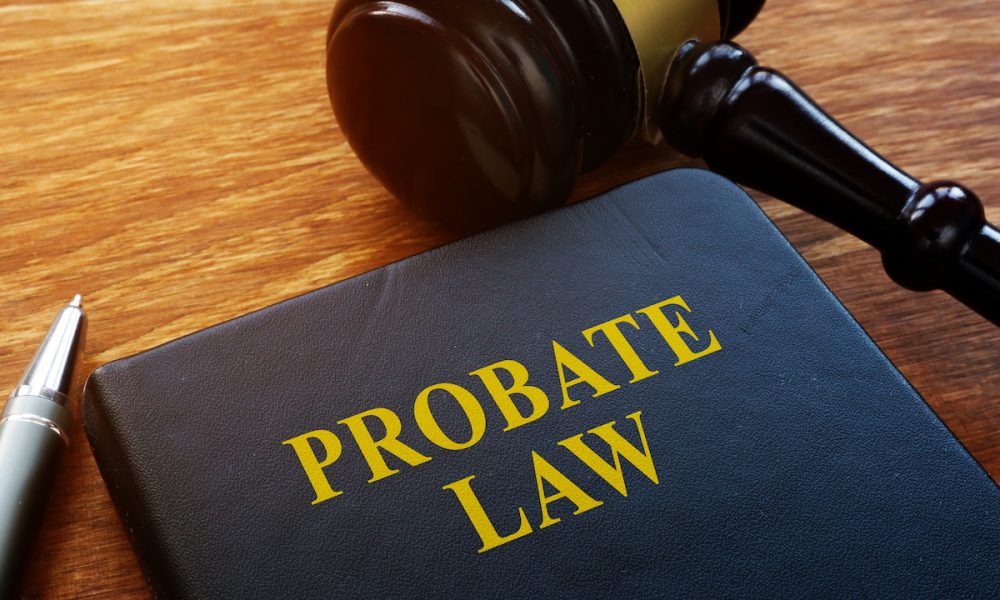
When you’re grieving and had a significant loss in your life, a complicated legal and financial process is the last thing you want or need to face. But often, that’s exactly what happens when families go through the probate process after losing a loved one. Understanding the probate process can help keep you from getting caught by surprise and protect your assets.
Do you know who is in charge of a will after someone dies? Or, what happens if someone dies without a will? Wondering if there is a way to avoid a lengthy probate process and a pile of legal paperwork?
1. What Is Probate?
Probate is the legal process of administering a person’s estate after their death. If a person has a last will and testament in place, probate is about proving that your will is legally valid, executing your instructions, and paying applicable taxes.
One way to make the probate process easier on your loved ones is to have a clearly written will. Your will is not only about who will inherit what. It also designates who you’d like to take care of your kids if both parents were to pass away, plus the executor who should fulfill the instructions in your will. If you die without a will, the probate court will rely on Florida’s intestate law to figure out how to distribute the person’s stuff.
2. Probate Terminology to Know
Legal terms can be overwhelming, especially when you’re already dealing with a lot. Here are some useful probate terms to know:
- Decedent: The deceased person whose estate is going through probate.
- Executor or personal representative: The person in charge of carrying out the instructions in the will.
- Administrator: A court-appointed executor, if someone dies without leaving a will.
- Intestate: A case where someone dies without a will.
- Intestacy: State laws determining how to distribute such estates.
- Letters testamentary: A document from a probate court authorizing the executor to start carrying out the will.
- Notice of probate and notice to creditors: Notices that the executor has to submit, in writing, to the heirs (“interested parties”) and creditors.
- Small estate affidavit, summary probate and/or summary administration: Documents or processes that can allow you to skip or shorten certain aspects of probate (i.e., distribute property without a lengthy court process).
3. What are probate assets?
According to the Florida State Bar, this is the definition of probate assets – “assets that were owned in the decedent’s sole name at death, or that were owned by the decedent and one or more co-owners and lacked a provision for automatic succession of ownership at death are considered probate assets”.
4. What are non-probate assets?
Here are a few assets that are non-probate assets. It is essential to discuss these assets in detail with an experienced probate attorney in Clearwater before acting on any of this information.

Assets that are owned in your sole name but have a transfer on death (TOD), payable on death (POD), or in trust for (ITF) designation will avoid probate after you die. Also, included are Health Savings Accounts and Transfer on Death or Beneficiary Deeds.
Assets owned jointly with your spouse or others, such as a child or sibling, through rights of survivorship (joint tenants with rights of survivorship, or JTWROS) will avoid probate after you die.
Assets owned with your spouse in a special type of joint ownership recognized in some states called tenants by the entirety (or TBE) will avoid probate after you die.
At the time of your death, assets owned by your Revocable Living Trust will avoid probate after you die.
Assets owned by you through contract rights that are payable to a designated beneficiary after your death, including life insurance policies, IRAs, 401(k)s, and annuities, will avoid probate after you die.
5. Guide to Navigating Probate Court
Your own state laws will determine your probate experience, but here are the general steps to navigating a probate court.
Step 1: Open Probate
Step 2: Send Notices
Step 3: Take Inventory
Step 4: Distribute Assets
Step 5. Close the Estate
6. Benefits of Avoiding Probate
The benefits of avoiding probate are:
- It’s often more straightforward and faster for account beneficiaries to claim the funds.
- You’ll avoid probate court fees and executor’s fees (which can be significant, especially if the executor is legally entitled to a certain percentage of the estate).
- Avoiding probate will keep your matters private instead of appearing in public records, as you would with probate.
Your financial and family situation will determine whether probate is worthwhile for you, or if keeping as many assets outside of probate as possible is best.
If you need an experienced probate attorney in Clearwater, give Arvanitakis Law Group a call at 727-600-5858 to set up a consultation.